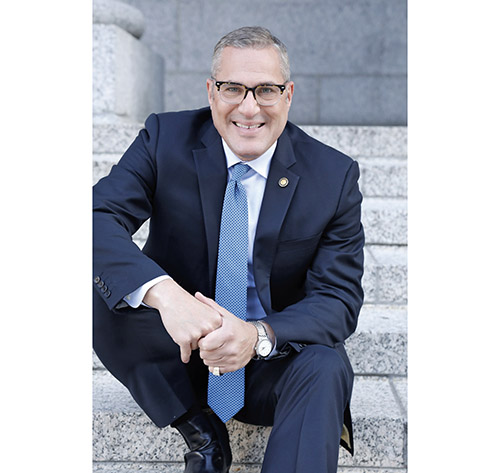
Reviewing: “Safe Haven in America: Battles to Open the Golden Door” by Michael Wildes. American Bar Association. 2018. English. Hardcover. 200 pages. ISBN-13: 978-1641051897.
Immigration into the United States has long been a dream for men and women in foreign countries who have been hunted by powerful enemies or haunted by visions of a hopeless future. Attorney Michael Wildes, managing partner of Wildes and Weinberg, a firm began by his father, and soon-to-be mayor of Englewood for the second time, writes about the people he has helped and the hoops they had to jump through in “Safe Haven in America: Battles to Open the Golden Door,” published by the American Bar Association (ISBN:978-1-4105-189-7). Wildes’ book brings a once-arcane subject into the mainstream, educating readers about immigration law and the consequences of what he calls a broken system, where federal and state laws often conflict and immigrants have become scapegoats for society’s problems. In turn, “Safe Haven” is a polemic, international thriller and textbook in immigration law.
Wildes is clear about his premise in writing the book. Instead of welcoming the stranger, we are demonizing him. “I wrote this book to step beyond the political shibboleths and to find a human dimension to this national problem.” While he is clear that the danger of enemies slipping into the country is real and must be recognized, he rails against shutting the gates on the hard-working, well-meaning immigrants who have always been the backbone of the country.
Wildes represents his clients in the court of public opinion as well as before a judge. While he is often sought out by the media to comment when immigration is in the news, he also invites media attention for high-profile cases. The resulting publicity often makes the wheels of justice turn faster. “I can categorically state that all my research and well-reasoned arguments are not enough in today’s landscape,” he writes. “Amplifying my voice through the media has often been the only way for me to protect the interests of my clients when their applications and pleas were falling on deaf ears within the halls of government.”
“Safe Haven” is at its best when Wildes tells the stories of his clients against the backdrop of the world’s trouble spots. When he writes about helping Mohammad Gulab, a villager in Afghanistan who rescued an American Navy Seal and became the enemy of the Taliban, we also get a better view of the war in that country and how impossible it would have been for Gulab to remain there. Wildes writes about the obstacles he had to overcome to achieve legal status for Gulab in the U.S., and how hard it was for Gulab to start over from what had once been a privileged life.
Not every story has a happy ending; in one case, there is no ending. Wildes briefly describes how Pakistan became a nuclear power and how Iftikhar Khan Chaudhry, a research assistant who claimed to work in Pakistan’s nuclear program, tried to thwart plans for a potential first strike against India by drafting a protest letter to his superior. He became a pariah and had to defect to the U.S., where he became a client of Wildes. While he was initially of interest to the government, his case for asylum began to unravel. Wildes writes that he broke off contact and his whereabouts remain unknown.
An area where Wildes has helped to make law is in cases where a divorced, foreign-born spouse kidnaps his American children and takes them to another country. In 1961, the Hague Convention was signed by 97 countries that agreed to return children who were wrongfully removed. But it was not signed by Arab countries, where women have no rights over their children. Through his pro bono work with Pat Roush, whose husband kidnapped their children to Saudi Arabia, Wildes saw the passage of an international children’s abduction law in Congress and the establishment of an Office of Children’s Concerns in the State Department.
Wildes deplores the decision made by the Trump administration to end DACA, Deferred Action for Childhood Arrivals, that let children brought here illegally by their parents get work authorization and not be subject to deportation. Many are now in limbo, not knowing any other country but living in fear they will be unable to stay. The fear has left many afraid to report being victims of or witnesses to crime.
That fear among all undocumented immigrants has led to the establishment of sanctuary cities. Sanctuary cities resulted from a case in which the Supreme Court gave police officers the authority to question a person’s immigration status. Understandably, illegal aliens, fearful of being deported, try to make themselves invisible by not reporting crime or even going to an emergency room for illness. Many local communities have made it illegal to inquire about immigration status, thus the term “sanctuary city.” However, when a person is convicted of a crime, he is reported to immigration. In New Jersey, officers are prohibited from inquiring about the immigration status of victims and witnesses.
With immigration appearing constantly in the headlines, “Safe Haven” gives much-needed context to the news and reminds us that behind the politics are men and women trying as best they can to improve life for themselves and their families.
By Bracha Schwartz








